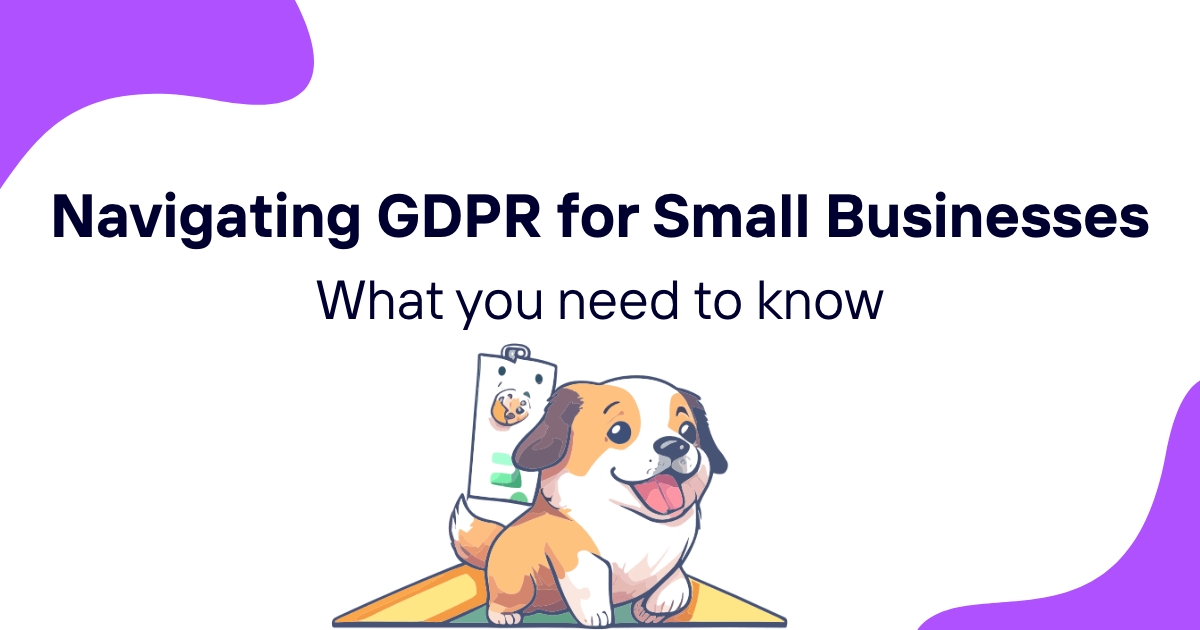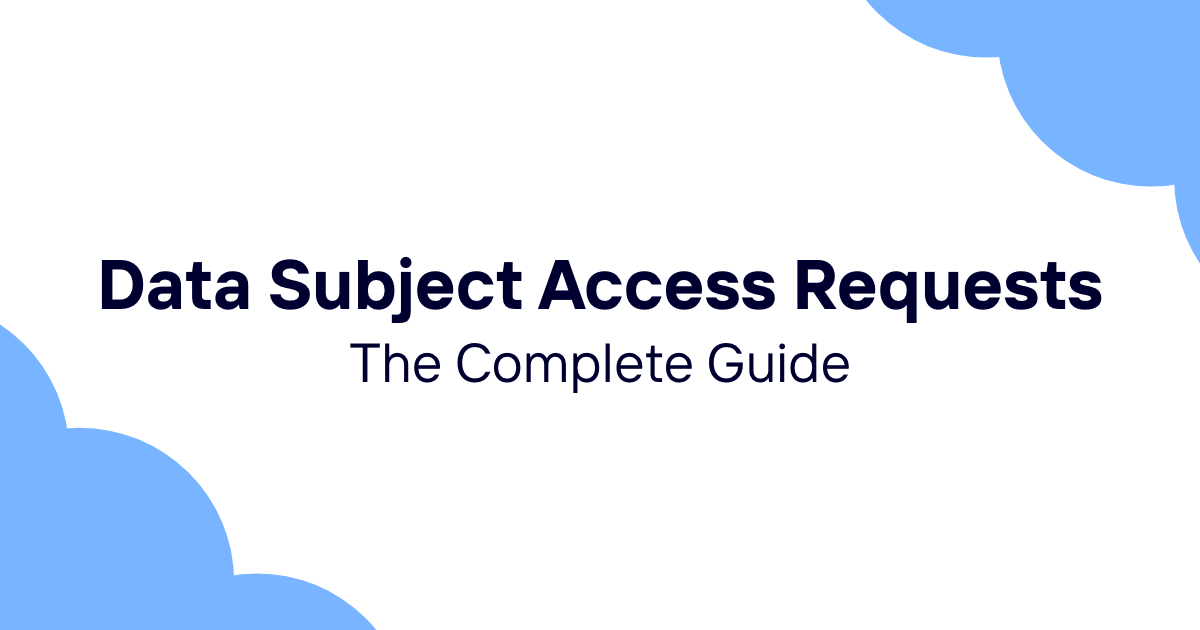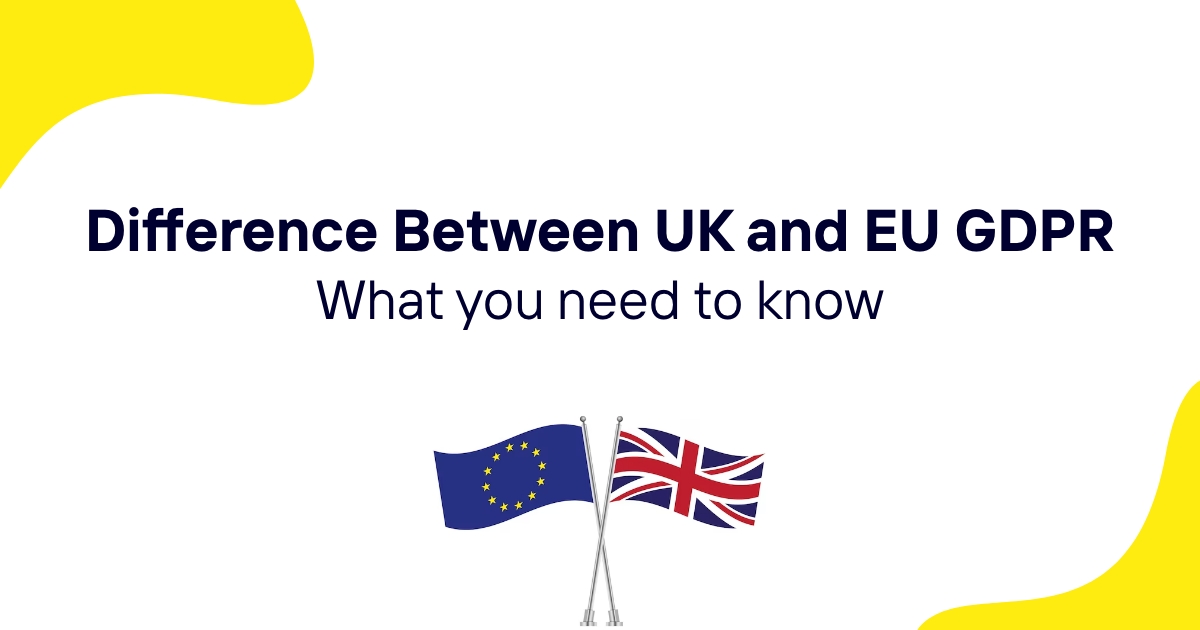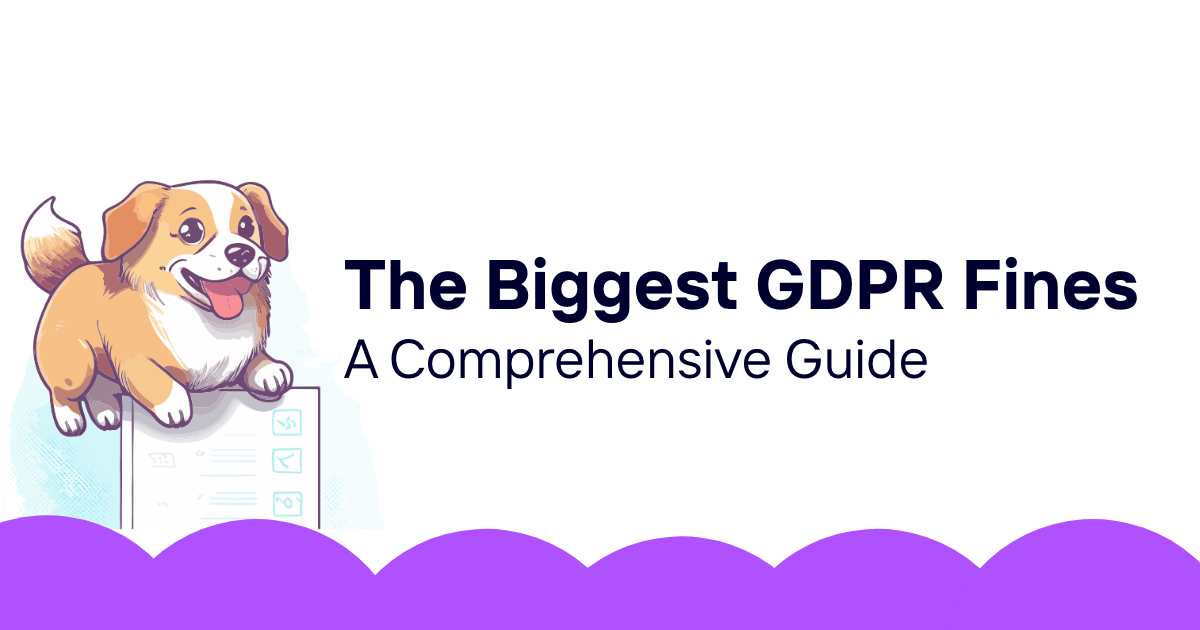Table of Contents
Introduction
The General Data Protection Regulation (GDPR) has significantly impacted how businesses handle personal data, regardless of their size. For small businesses, understanding and implementing GDPR requirements can seem daunting. However, compliance is crucial not only to avoid hefty fines but also to build trust with customers and protect their privacy.
This comprehensive guide will walk you through the essentials of GDPR for small businesses, providing practical steps to achieve compliance and highlighting the benefits of adhering to these data protection standards.
What is GDPR?
The General Data Protection Regulation is a comprehensive data protection law that went into effect on May 25, 2018. It aims to give individuals in the European Union (EU) and European Economic Area (EEA) more control over their personal data and to simplify the regulatory environment for international business.
Key aspects of GDPR include:
- Expanded territorial scope
- Stricter consent requirements
- Enhanced data subject rights
- Mandatory breach notifications
- Significant penalties for non-compliance
GDPR applies to the processing of personal data, which includes any information relating to an identified or identifiable natural person. This can include names, identification numbers, location data, online identifiers, or factors specific to the physical, physiological, genetic, mental, economic, cultural, or social identity of that person.
Does GDPR Apply to Your Small Business?
Many small business owners mistakenly believe that GDPR only applies to large corporations or businesses based in the EU. However, GDPR's reach extends far beyond these limitations. Your small business may need to comply with GDPR if:
- You have an establishment in the EU
- You offer goods or services to individuals in the EU (even if free)
- You monitor the behavior of individuals in the EU
It's important to note that GDPR applies regardless of whether payment is required. Even if you're a small e-commerce store occasionally selling to EU customers or a blog with EU readers, you may need to comply.
Key GDPR Principles for Small Businesses
Understanding the core principles of GDPR is essential for small businesses aiming for compliance. These principles should guide your data processing activities:
-
Lawfulness, fairness, and transparency: Process personal data lawfully, fairly, and in a transparent manner.
-
Purpose limitation: Collect data for specified, explicit, and legitimate purposes.
-
Data minimization: Ensure data is adequate, relevant, and limited to what's necessary.
-
Accuracy: Keep personal data accurate and up to date.
-
Storage limitation: Store data for no longer than necessary for the purposes for which it was collected.
-
Integrity and confidentiality: Process data securely, protecting against unauthorized or unlawful processing, accidental loss, destruction, or damage.
-
Accountability: Be responsible for and able to demonstrate compliance with these principles.
Steps to GDPR Compliance for Small Businesses
Achieving GDPR compliance involves several key steps:
-
Conduct a data audit: Identify what personal data you collect, where it's stored, how it's used, and who has access to it.
-
Establish a legal basis for processing: Determine the lawful basis for processing personal data, such as consent, contract fulfillment, or legitimate interests.
-
Update privacy policies: Clearly communicate how you collect, use, and protect personal data in your privacy policy.
-
Implement data protection measures: Use encryption, access controls, and other security measures to protect personal data.
-
Train employees: Educate your staff about GDPR requirements and their role in maintaining compliance.
-
Review and update contracts: Ensure agreements with vendors and partners include GDPR-compliant data protection clauses.
-
Establish procedures for data subject rights: Create processes to handle requests for access, rectification, erasure, and data portability.
-
Implement data breach procedures: Develop a plan to detect, report, and investigate personal data breaches.
-
Document your compliance efforts: Maintain records of your data processing activities and compliance measures.
Data Protection Officer (DPO) Requirements
Small businesses may wonder if they need to appoint a Data Protection Officer (DPO). Under GDPR, you must appoint a DPO if:
- You are a public authority or body (except for courts acting in their judicial capacity)
- Your core activities require large-scale, regular, and systematic monitoring of individuals
- Your core activities consist of large-scale processing of special categories of data or data relating to criminal convictions and offenses
For many small businesses, appointing a full-time DPO may not be necessary. However, it's still advisable to have someone responsible for overseeing data protection compliance, even if not formally designated as a DPO.
Handling Data Subject Rights
GDPR grants individuals several rights concerning their personal data. Small businesses must be prepared to handle requests related to these rights:
-
Right to be informed: Provide clear information about data collection and use.
-
Right of access: Allow individuals to access their personal data.
-
Right to rectification: Correct inaccurate or incomplete data upon request.
-
Right to erasure: Delete personal data when requested, subject to certain conditions.
-
Right to restrict processing: Limit the processing of personal data in certain circumstances.
-
Right to data portability: Provide personal data in a structured, commonly used, and machine-readable format.
-
Right to object: Allow individuals to object to the processing of their data in certain situations.
-
Rights related to automated decision-making: Provide safeguards for individuals subject to decisions based solely on automated processing.
Implement clear procedures for verifying and responding to these requests within the required timeframe (usually one month).
Data Breach Notification Requirements
Under GDPR, small businesses must report certain types of personal data breaches to the relevant supervisory authority within 72 hours of becoming aware of the breach. If the breach is likely to result in a high risk to the rights and freedoms of individuals, you must also inform those individuals without undue delay.
To prepare for potential data breaches:
- Develop a data breach response plan
- Train employees to recognize and report potential breaches
- Maintain a record of all data breaches, regardless of whether they need to be reported
- Establish clear communication channels with your supervisory authority
GDPR Compliance Challenges for Small Businesses
Small businesses often face unique challenges when it comes to GDPR compliance:
-
Limited resources: Implementing comprehensive data protection measures can be costly and time-consuming.
-
Lack of expertise: Small businesses may not have in-house data protection specialists.
-
Complex requirements: Interpreting and applying GDPR's extensive requirements can be challenging.
-
Balancing compliance with growth: Ensuring compliance while focusing on business development and customer acquisition.
-
Managing consent: Implementing and maintaining systems for obtaining and recording valid consent.
-
International data transfers: Navigating the requirements for transferring data outside the EU/EEA.
To overcome these challenges, consider seeking expert advice, leveraging technology solutions, and prioritizing compliance efforts based on your specific risks and data processing activities.
Benefits of GDPR Compliance for Small Businesses
While achieving GDPR compliance may seem burdensome, it offers several benefits for small businesses:
-
Enhanced customer trust: Demonstrating a commitment to data protection can improve customer relationships and loyalty.
-
Competitive advantage: GDPR compliance can set you apart from competitors who may not prioritize data protection.
-
Improved data management: Compliance efforts often lead to better overall data management practices.
-
Risk reduction: Proper compliance reduces the risk of data breaches and associated penalties.
-
Global market access: GDPR compliance can facilitate expansion into EU markets.
-
Increased operational efficiency: Streamlining data processes can lead to improved business operations.
Tools and Resources for GDPR Compliance
Several tools and resources can assist small businesses in achieving GDPR compliance:
-
Data mapping tools: Help identify and visualize data flows within your organization.
-
Consent management platforms: Facilitate the collection and management of user consents.
-
Data protection impact assessment (DPIA) tools: Guide you through the DPIA process for high-risk processing activities.
-
Employee training programs: Offer online courses to educate staff about GDPR requirements.
-
Privacy policy generators: Assist in creating GDPR-compliant privacy policies.
-
Data breach notification tools: Help manage the breach notification process.
-
Encryption tools: Protect sensitive data through encryption.
-
Access management systems: Control and monitor access to personal data.
Remember to carefully evaluate any tool or service to ensure it meets your specific needs and complies with GDPR requirements.
Common GDPR Myths for Small Businesses
Dispelling common misconceptions about GDPR can help small businesses focus on genuine compliance requirements:
-
Myth: GDPR doesn't apply to small businesses. Reality: GDPR applies to businesses of all sizes that process EU residents' personal data.
-
Myth: Consent is always required for processing personal data. Reality: Consent is one of six lawful bases for processing; others may be more appropriate in certain situations.
-
Myth: GDPR compliance is a one-time effort. Reality: Compliance is an ongoing process requiring regular review and updates.
-
Myth: GDPR only applies to digital data. Reality: GDPR applies to all personal data, whether digital or paper-based.
-
Myth: Small businesses outside the EU are exempt from GDPR. Reality: GDPR can apply to businesses outside the EU if they process EU residents' data.
-
Myth: GDPR compliance is too expensive for small businesses. Reality: While there are costs involved, many compliance measures can be implemented cost-effectively.
GDPR Compliance Checklist for Small Businesses
Use this checklist to guide your GDPR compliance efforts:
- Conduct a comprehensive data audit
- Identify your lawful bases for processing personal data
- Update your privacy policy and other public-facing documents
- Implement appropriate technical and organizational security measures
- Establish procedures for handling data subject rights requests
- Create a data breach response plan
- Review and update contracts with data processors
- Train employees on GDPR requirements and your compliance procedures
- Appoint a Data Protection Officer if required (or designate someone responsible for data protection)
- Implement data protection by design and by default in your processes
- Maintain records of processing activities
- Conduct Data Protection Impact Assessments for high-risk processing activities
- Regularly review and update your compliance measures
Conclusion
GDPR compliance is not just a legal obligation for small businesses; it's an opportunity to demonstrate commitment to data protection and build trust with customers. By understanding the key principles, implementing necessary measures, and staying informed about evolving requirements, small businesses can navigate the complexities of GDPR and turn compliance into a competitive advantage.
Remember, GDPR compliance is an ongoing process. Regularly review and update your data protection practices to ensure continued compliance and to adapt to changes in your business and the regulatory landscape. While the journey to full compliance may seem challenging, the benefits of enhanced data protection and increased customer trust make it a worthwhile endeavor for small businesses in today's data-driven world.


















